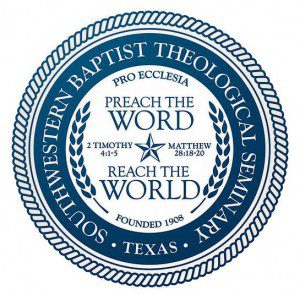“Your brother’s blood cries out to me from the ground.”
— Genesis 4:10
She was, when she died, almost precisely the same age as my daughter is today. Two years and ten months. Children at that age are miraculous creatures. They’re boundlessly energetic and inquisitive, wellsprings of laughter and affection, young enough to want nothing more than your attention and your approval and old enough to run into your arms and squeeze your neck and surprise you with their insights, their creativity, and their expressions of uncomplicated love. That’s why the pictures of the sweetly-smiling little girl named Caylee still hit me like a punch in the gut.
“Not guilty.” The words sank like millstones. That precious little girl whose pictures I had seen on the television, whose body was found decomposing in a swamp six months after her mother refused to report that she was gone — where was her justice? It did feel, in that moment, as though her blood cried out from the ground. There was something primal about it. The dagger of her death twisted a little further into our viscera. It felt as though this woman who had concealed the truth and deceived her family, who had celebrated and posed so joyfully and so infuriatingly while dancing and flirting and posing for sophomoric photos with strangers in the days and weeks after her daughter’s death, was going to get away with it. She misled the investigators long enough that by the time they found that painfully small skeleton it was too far decomposed to determine the cause of death.

Humanly speaking, no living person except Casey Anthony herself knows exactly how her daughter Caylee died. I have my suspicions. We all do. But I can’t say that I know for certain. It’s hard to imagine that a mother would murder her own daughter and dispose of the body so callously. But’s also hard to imagine that a mother would frolic at parties mere days after her daughter has died, and yet it happened.
What is certain is that Casey partied like an off-the-wagon Hollywood starlet before Caylee was long gone, and that she lied completely and pathologically to her family, police and the investigators. What seems certain is that Casey duct-taped her daughter’s mouth and eyes, threw her body in a bag and dumped it in a swamp before the partying started. These things alone were enough to convict Casey in the eyes of most. How could anyone but a monster do these things? Yet what is not certain is how precisely Caylee died, and whether her death was intentional or accidental. Did Casey – who looked up “neck breaking” and “how to make chloroform” on her computer around the time of Caylee’s death – take her life? Or did Casey find her little girl drowned in a pool, panic, dump the body, throw herself into a snowballing series of lies and deceptions, and anesthetize herself with drunken carousing?
I think Casey is probably guilty, but probably isn’t enough to condemn a woman to death for the murder of her daughter. All of the other information in the case pointed to a fundamentally selfish and dishonest woman, unstable and morally adrift, 120 pounds of narcissism with hair. But the only really essential question — whether the death was accidental or intentional — was exactly the question that could not be answered. We just don’t know.
But God knows. And God is not mocked.
One little-known fact about the Bible, outside scholarly circles, is that the oldest biblical texts scarcely ever mention what happens to the human person after death. When the earliest references appear, they are to a pit, Sheol, a gloomy half-existence where the souls of the dead wander about, unremembering, undifferentiated, seemingly unable to act or remember or give witness to God. This was not eternal life, but merely an afterlife, not the resurrection of the whole person in body and soul, but the persistence of some semblance of consciousness. It was only gradually that the ancient Hebrews began to understand the implications of the vision of God they had received.
The problem of evil, as we presently understand it (if God is all-good and all-powerful, why is there evil?), is not really the problem addressed in the Old Testament. They had a ready explanation for evil in the story of the Fall. They also had a ready explanation for the suffering of the wicked. The wicked simply deserved it. The central theodical problem in the Hebrew scriptures, rather, is this: Why do the righteous suffer and the evil prosper? This question is repeated in manifold ways throughout the Old Testament.
In fact, in some ways, even the suffering of the righteous was not terribly difficult to understand. The righteous are tested and refined in the furnace of affliction, or so that their suffering could serve God’s redemptive purposes, and even when they could see the reasons why God permits their suffering they should be humble in the face of God’s might and wisdom. Rather, the really hard thing to explain was why the wicked prosper.
We wrestle a lot with: Why does God let bad things happen to good people? The ancients – who rarely saw people as truly good, in any case, but who saw plenty of instances of extraordinary wickedness – wrestled a lot with: Why does God let good things happen to bad people? We don’t seem to feel the pinch of this question today — except perhaps in moments like this, when the blood of the innocent cries out for justice.
The richly variegated vision of an eternal afterlife, in which the righteous go to be with God and the wicked to suffer apart from God, did not emerge until the Jews were taken into exile and realized that they would not see the reward for their righteousness, and the wicked would not see the punishment for their wickedness, in this world and this life. It was then that they received the promise of eternal justice. If the God who had revealed himself to them was truly a God of perfect Love and Justice, as they believed he was, then he could not let the righteous perish without the reward for their righteousness and he could not let the wicked perish without the punishment for their wickedness. There must be an eternal reckoning. This was the vision that prevailed in the later prophets and the intertestamental period.
Morbid though it may seem to those of us who live in ease, the thought that justice should be delivered to their oppressors gave great comfort and hope to the ancient Hebrews. I can understand that a little bit better on a day like today. Whatever our own imperfect justice system determines, whatever the judges and the juries get right or wrong, God will sort it out in the end. Justice will prevail.
And yet, from the Christian perspective, even this was not the final word. The knot that remained in the fabric was what we noted: that no one really is good, no one really is holy, and so no one deserves God. Jesus speaks of the resurrection to judgment, of living eternally with or apart from God, and yet the hope of salvation is ultimately by faith in the mercy of God and in the gracious provision that God in his love has made for us.
If Casey is not guilty of murder, then may God sustain her — for whatever else she might have done, she does not deserve, on top of the grief of Caylee’s loss (however deeply buried that grief might have been), to be universally scorned as the murderer of her own daughter.
If she is guilty of murder, then may God have mercy on her soul. And I mean that literally. Jonah did not want the people of Ninevah to repent and be saved (Jonah 4), and he was rebuked for it. I am a Christian, and as such I should always hope for repentance, for mercy, for redemption and reconciliation with God. God does not will that any should perish — not even a mother who murders her own daughter. God can save Caylee. God has saved Caylee, and she is peacefully and joyfully present with him. Yet God wishes to save Casey too. God will see that the righteous are rewarded, but in the end the only one righteous is Christ. God would see that the wicked are saved (and by the wicked I mean all of us), and God went to extraordinary lengths to make redemption possible for those who would receive it.
Some have walked further down the road to perdition; they’ll have further to walk back along the path (sanctification) after their repentance. But repentance is not walking down the path. Repentance is simply turning around. Whether we’ve taken ten steps down the road, or ten thousand, it’s in the turning around (justification) that we’re saved. In absolute terms, Casey’s sins may be worse than my own. But she doesn’t need to live down her sins — to be sanctified — in order to be saved. She just has to take refuge in the grace of God in Christ. And in some ways, those who’ve walked further down the path have it easier; they won’t be tempted to believe they can walk back on their own. The grace of God does not have to overcome our sinfulness. It has to overcome our pride.
So this may sound like a pious exaggeration, but theologically I sincerely believe it’s true: if the grace of God were not this radical, then neither Casey Anthony nor I would have any hope. That is, I’d better hope that the grace of God is powerful enough to reach a mother who murders her child, lest it be too weak to reach me. May God have mercy on us all.











